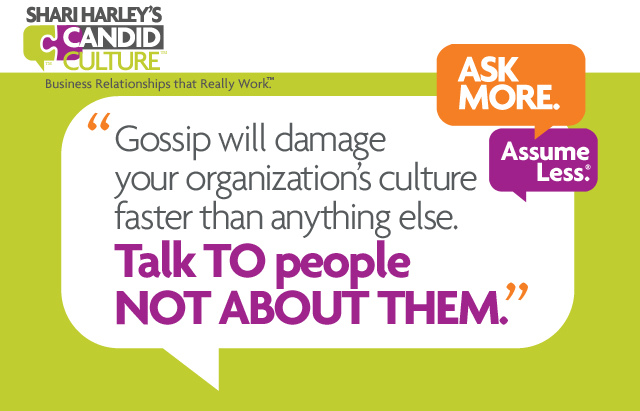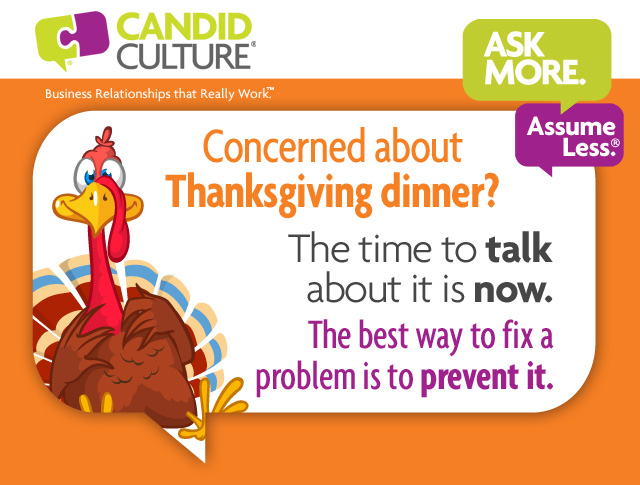Want a Better Workplace Culture? Gossip Less.
People have a tendency to talk about us, not to us. If you haven’t been gossiped about, you just need to meet more people.
If you have something to say, say it directly to the person involved. If you’re not going to speak to the person directly, say nothing at all. As we all know, this is easier said than done. Gossip will destroy relationships, organizational cultures, and careers faster than anything else. And we are all tempted to gossip.
Most of us consider gossip to be saying something bad about someone else when that person isn’t there. But what if we say something good?
The strictest definition of gossip is talking about another person while she is not present. But for our purposes, let’s say gossip is talking about another person so as to alter how others think about that person.
Several years ago, I took a year-long class with about eighty other people. The class met one weekend a quarter over twelve months and had a few ground rules, one of which was no gossip. Participants couldn’t gossip anywhere, at any time, during the class’s entire duration. No gossip with friends, family, or coworkers for a year.
When the class started, I assumed the no-gossip guideline would be no problem for me. Then I started to notice my behavior. At the time, I was a director in my organization and had one friend at work who was my typical confidant. Most of us have “our person” at work—someone we confide in and complain to. The two of us would sit in my office with the door closed, talking about all the bad decisions the leaders of our company had made. The moment I began paying attention to the no-gossiping rule, I realized that not only did I gossip, but I was good at it and even enjoyed it. (Oh, come on, admit it—it’s fun.)
The problem is that gossiping breaks trust. If a coworker gossips with you about someone else, he will talk about you to someone else. You are not special or different. (Well, you are, but you know what I mean.) You are not exempt.

As you rise in an organization, you have exposure to more and more sensitive information. You know about employees’ performance ratings, the organization’s financial results, and impending layoffs. One criterion of promotion is being able to be trusted with sensitive information. If the senior people in your organization think you’re a gossip and can’t be trusted to keep confidences, your career is going nowhere.
People will never stop gossiping. It’s one of those human things. We all do it, and we aren’t going to quit. The best we can hope for is to reduce the amount of time we spend talking about other people behind their backs.
I won’t suggest you stop gossiping. I merely suggest you bring attention to the gossip circulating throughout your organization. Bringing attention to the gossip circulating in your organization will raise awareness, and reduce the gossip, just a little bit.
** This blog is an excerpt from the book How to Say Anything to Anyone.





